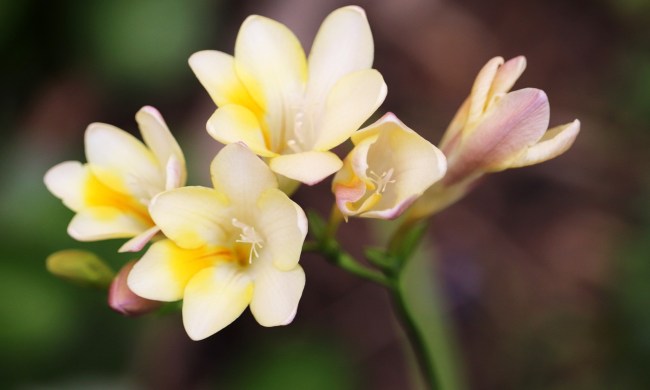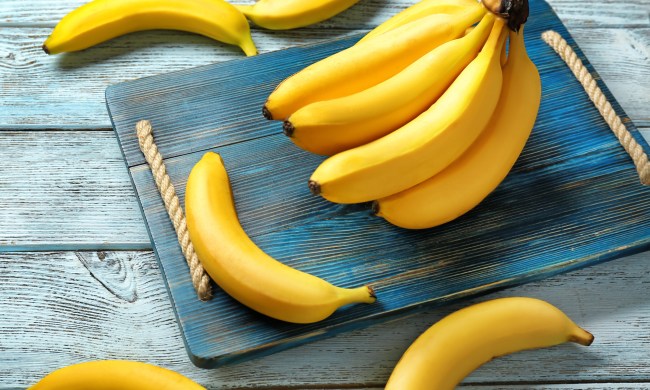Gardening can provide delicious food for you and your family, but it can also provide a meal for pests. There are many strategies for defending plants, from organic pest control methods to chemical ones. One such solution is Epsom salt. Epsom salt makes for wonderful and relaxing baths, but can it help protect your plants from insects? Does Epsom salt kill termites, slugs, snails, and beetles? Can Epsom salt control garden pests? Or is it more likely to harm your plants and keep them from thriving? To help you make the most out of this pest control technique, here’s what you need to know.
Does Epsom salt keep pests away?
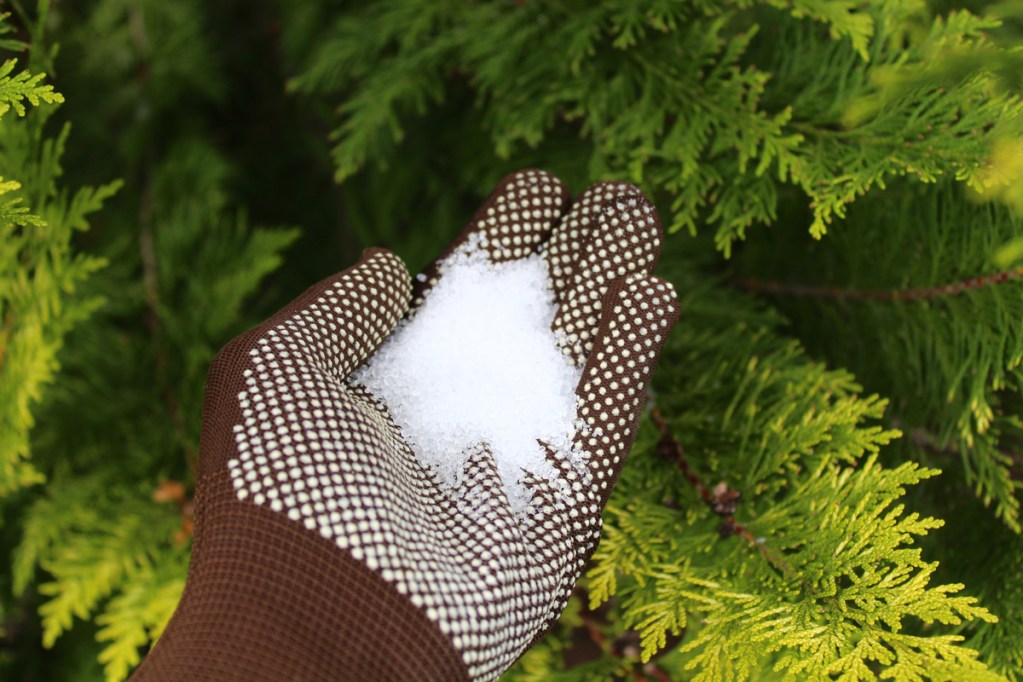
Using Epsom salt for pest control purposes is something many gardeners swear by, and there are several ways it has been traditionally used in the garden. There are some more recent scientific studies showing that Epsom salt may not be as helpful as people believe, although it can be effective for pest control indoors. However, the anecdotal evidence in favor of Epsom salt is strong. If you’d like to try it out for yourself, here are the most common ways to use Epsom salt in your garden.
Dilute 1 to 2 tablespoons of Epsom salt in 1 gallon of water. It may not seem like a lot, but Epsom salt is very concentrated, so it doesn’t take much. Water your plants with Epsom water instead of regular water once or twice a month. Since it can help plants better absorb nutrients and be stronger and healthier, the idea is that a stronger plant can more easily defend against or recover from pests.
You can also sprinkle a line of dry Epsom salt around the edge of your garden, between rows in your garden, or around individual plants. This is intended to defend against slugs and beetles in particular.
Can too much Epsom salt hurt plants?

Epsom salt can provide a lot of benefits, but it can also hurt your plants. It all depends on the magnesium content of your soil. Magnesium helps plants absorb nutrients and produce chlorophyll. Epsom salt is magnesium sulfate crystals. If your soil is deficient in magnesium, then adding a small amount of Epsom salt occasionally can help your plants create bigger blooms and greener leaves.
However, plants need a balanced diet, so if your soil already has plenty of magnesium, adding Epsom salt can throw off the balance of your soil and cause problems for your plants. It can even kill plants over an extended period of time.
What pests does salt kill?

Salt is notorious for the way it affects slugs and snails, but those are not the only pests it kills. Salt can kill cockroaches, although it isn’t the most effective way to deal with them. Cockroaches can eat and interact with salt safely, but salt can drown them and kill them.
Have you ever wondered if Epsom salt can kill termites? The answer is yes, salt, even Epsom salt, can kill these creepy pests. Pouring saltwater with a high salt content into termite holes can be an effective remedy. Adding salt to any potential termite entrances, such as cracks or holes in foundations or walls, can help keep termites from taking up residence in your home in the first place. You can also use salt water to kill spiders, and dry salt sprinkled around your house can kill fleas. Epsom salt isn’t the same as table salt, but you can use it in much the same way, at least in terms of pest control.
What does salt do to pests?
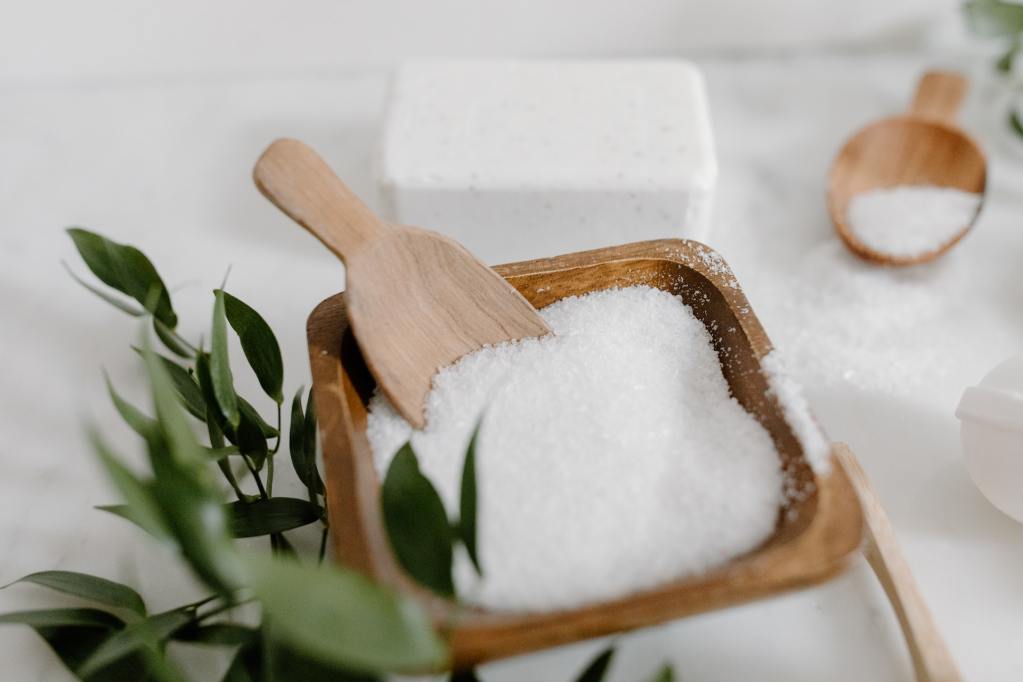
Salt kills pests by dehydrating them, and there are two ways it causes dehydration in pests. Pests with exoskeletons, like fleas or beetles, typically die when the coarse edges of salt grains scratch their exoskeleton. When their exoskeletons are scratched, they lose the ability to retain water. Salt, Epsom salt, diatomaceous earth, and even coarse sand can all have the same effect.
The second way salt causes dehydration is through ingestion or absorption. Slugs and snails have thin skin and absorb things through their skin. Even a little bit of salt absorbed through the skin or ingested causes severe dehydration. This is the same process that happens to us when we drink too much seawater, but since insects are so much smaller, it takes a lot less salt to dehydrate them.
Getting rid of weeds
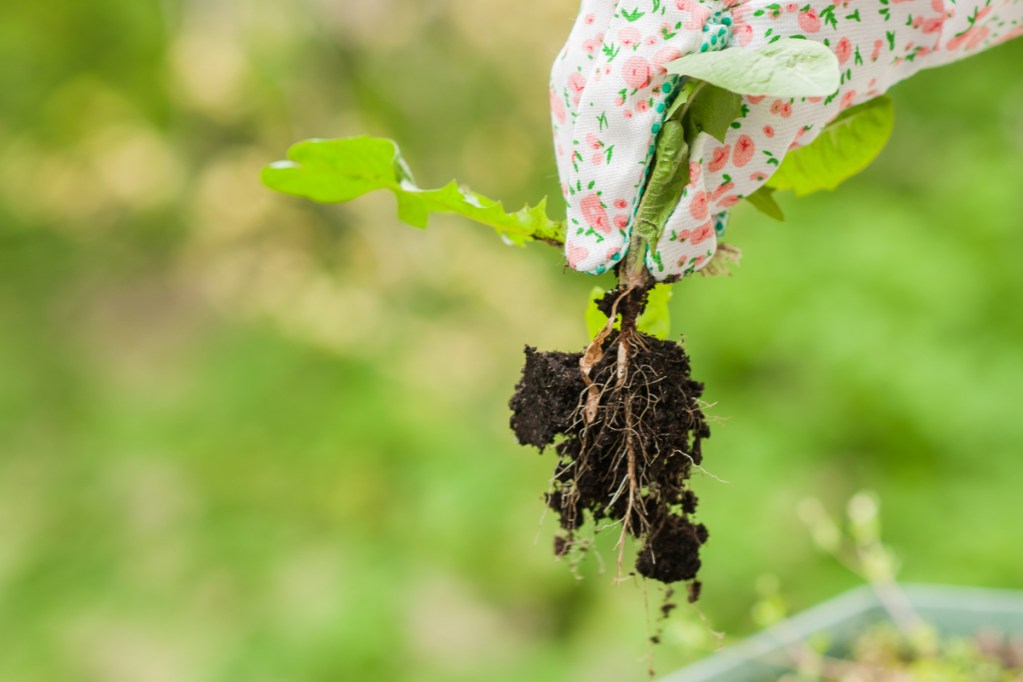
Rising in popularity has been the use of Epsom salt as a weed killer. Recipes call for a mix of dish soap or liquid detergent, Epsom salt, and vinegar. At first glance, the mixture seems to work quite well, with leaves drying and dying rapidly. However, the effects don’t last long, and it’s easy to see why when considering the ingredients.
Epsom salt can harm plants in large doses, but in smaller amounts, it improves a plant’s health. Vinegar is acidic and will dry leaves out when applied directly. However, if the weed’s roots run deep, they won’t be affected by the vinegar and the plant will grow back. Dish soap helps the solution stick to plant leaves but otherwise doesn’t help or harm the plant.
If you have smaller weeds with shallow roots, then a concoction of dish soap and vinegar may be helpful. Just remember that vinegar can also harm any other plants nearby. Don’t add any dish soap or detergent that contains bleach, either. Bleach and vinegar create a potentially lethal chlorine gas when mixed.
More flowers, more fruit

In addition to developing chlorophyll, magnesium helps strengthen your plants, potentially increasing the number and size of the flowers and fruits produced by the plant. If you’re looking to increase your harvest, you may want to target individual plants.
Dilute Epsom salt in water, roughly 2 tablespoons per gallon. You can water your plants with this instead of normal water once a month, or you can fill a spray bottle and gently mist your plants with it. Avoid misting plants that don’t like to get their leaves wet, like most types of succulents, and you should see the benefits when your plants start blooming and producing fruit.
Can Epsom salt deter rodents?

Epsom salt can help protect your garden from insectoid pests, but what about squirrels or mice that might be after your fruits and veggies? There is some evidence to suggest that it does work as a repellent, although it may not be the strongest defence. Rodents have an incredible sense of smell, and strong, off-putting scents such as that of Epsom salt can turn them away.
If they’re particularly bold or have been visiting your garden for years, the Epsom salt may not be enough to deter them, but it can deflect some rodents. If you’re suffering from a rodent infestation, Epsom salt can be a valuable part of your pest repellent plan.
Epsom salt is good for more than just soothing baths: you can use it to strengthen and enhance your plants, increase your yield or blooms, and keep pests out of your garden. Although it doesn’t work as a weed killer, it has plenty of other good gardening uses. Remember not to overuse it — it only takes a little bit to achieve major benefits.


